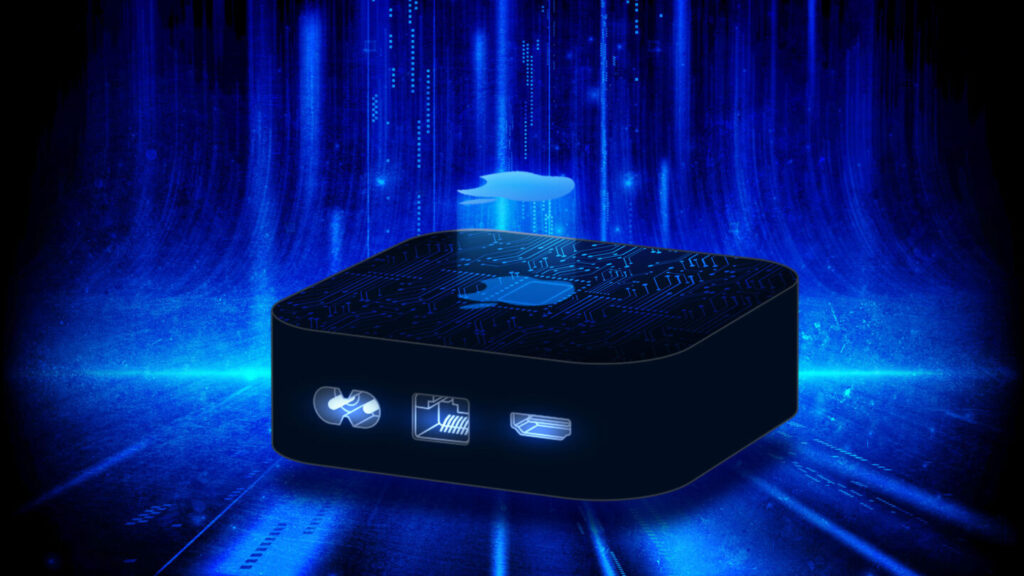
Here’s a rewritten version of your content with a clean, U.S.-friendly tone—streamlined for clarity, SEO-readiness, and reader engagement while preserving all the technical depth:
Why Privacy Advocates Prefer Apple TV Over Other Streaming Devices
Every time I write about how modern TVs are loaded with ads and hidden tracking tools, one product always comes up in the comments: Apple TV. In a world of smart TVs and streaming sticks that constantly monitor users, Apple’s set-top box is often seen as a rare safe haven for privacy-conscious viewers.
One common suggestion?
“Unplug your smart TV from the internet and connect an Apple TV instead.”
That advice, popular in privacy forums and echoed by Ars Technica readers, holds weight. Apple TV offers some of the strongest privacy protections available in a streaming device today. But how far does that protection really go—and will Apple’s approach to privacy hold as its streaming business expands?
Let’s explore why Apple TV stands out—and where privacy concerns still linger.
Apple TV: Privacy First at Setup
Apple sets itself apart right from the start. During setup, Apple TV users can opt out of Siri, location tracking, and analytics sharing. Voice control is disabled by default, and Apple clearly explains its privacy policies—unlike other platforms that bury such options deep in settings.
With tvOS 14.5 and later, Apple also forces third-party apps to ask permission before tracking users. When you choose “Ask App Not to Track,” those apps can’t access the device’s advertising ID (IDFA) or use alternate tracking methods like your email address.
The catch? This setting isn’t enabled by default—you have to turn it on manually. Apple could bolster its privacy stance by making “Do Not Track” the standard.
Beyond that, Apple TV gives users fine-grained control over data access—such as Bluetooth, microphone use, and HomeKit permissions.
As RJ Cross from the Public Interest Research Group (PIRG) puts it:
“Apple’s business doesn’t rely on targeted advertising. That’s a big reason why I trust them more than other tech giants.”
What If You Share Analytics with Apple?
If you do opt to share analytics, Apple says the data is anonymized using a method called differential privacy. This process adds “noise” to the data before it’s sent to Apple, preventing it from being tied to individual users.
In addition, Apple strips identifying details and encrypts the data, storing it in restricted environments.
Apple Accounts: Useful, But Not Required
While you don’t need an Apple account to use the Apple TV itself, logging in unlocks key features like Apple TV+, iCloud syncing, and app purchases.
But signing in gives Apple access to more of your personal data: app usage, search history, purchase activity, and even info from other Apple devices linked to the same account. This includes your device model, email, payment method, and IP address.
Privacy-focused users might opt to create a separate Apple ID just for the Apple TV—at the cost of losing cross-device syncing and other convenience features.
The Apple TV App: Convenient, But Data-Hungry
Most Apple TV owners use the native Apple TV app, especially to watch Apple TV+ content. The tradeoff? The app collects a wide range of viewing data, including watch history, purchases, interactions with app features, and even search terms.
Apple uses this data to offer content recommendations—not traditional ads, but still personalized promotions.
You can turn off these recommendations in Settings > Apps > TV > Use Play History, though the option is buried and off by default. Critics say Apple should make disabling tracking easier and more transparent.
Additionally, Apple may use your Apple TV viewing data to inform ads in other apps, like Apple News and the App Store—but not within Apple TV itself, which doesn’t show traditional ads.
Voice Input and Siri: Some Privacy Concerns Remain
Siri is optional during setup, but if enabled, your voice inputs are sent to Apple’s servers. Apple may store audio recordings (if you opt in) or transcripts (even if you don’t).
These transcriptions are kept for up to two years and used to improve Siri and dictation services. Apple says they’re anonymized and not used for marketing—but past issues, including a $95 million lawsuit over unauthorized recording, have raised red flags.
No Automatic Content Recognition (ACR)—Yet
One major privacy win for Apple TV users is the complete lack of Automatic Content Recognition (ACR)—software that monitors what you’re watching and reports it back for targeted ad purposes. ACR is common on smart TVs from Samsung, LG, Vizio, and others.
Could Apple add ACR in the future? Technically, yes. But Apple TV’s current software architecture would likely prevent ACR from being added retroactively to existing devices. Still, Apple could include it in a future model.
That’s what has privacy experts watching closely—especially as Apple explores ad-supported content tiers and expands its streaming ambitions.
RJ Cross warns:
“If Apple keeps moving toward targeted advertising, I’ll trust their privacy promises a lot less. Apple TV would be an easy place to introduce ads next.”
Final Thoughts: Apple TV Is Still the Best of a Flawed Category
No streaming device is truly private—but Apple TV remains the most privacy-friendly option available in the U.S.
Compared to Roku, Amazon Fire TV, or ad-filled smart TVs, Apple minimizes tracking, anonymizes user data, and avoids built-in ads. However, some privacy protections require manual setup—and Apple’s future direction in streaming and advertising remains uncertain.
As Darío Maestro from the Surveillance Technology Oversight Project puts it:
“In the U.S., there’s no law to guarantee your smart TV data stays private. Apple’s current behavior reflects its business model—but that could change at any time.”
Let me know if you’d like:
- A condensed version for social media or email
- An SEO meta description and title
- Suggested keywords and tags
- A version tailored for legal, tech, or privacy blogs